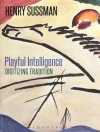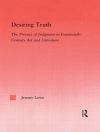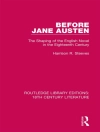Many writers in antebellum America sought to reinvent the Bible, but no one, Ilana Pardes argues, was as insistent as Melville on redefining biblical exegesis while doing so. In
Moby-Dick he not only ventured to fashion a grand new inverted Bible in which biblical rebels and outcasts assume center stage, but also aspired to comment on every imaginable mode of biblical interpretation, calling for a radical reconsideration of the politics of biblical reception. In
Melville’s Bibles, Pardes traces Melville’s response to a whole array of nineteenth-century exegetical writings—literary scriptures, biblical scholarship, Holy Land travel narratives, political sermons, and women’s bibles. She shows how Melville raised with unparalleled verve the question of what counts as Bible and what counts as interpretation.
Cuprins
List of Illustrations
Acknowledgments
Introduction
1. Playing with Leviathan: Job and the Aesthetic Turn in Biblical Exegesis
2. ‘Jonah Historically Regarded’: Improvisations on Kitto’s Cyclopedia of Biblical Literature
3. ‘Call Me Ishmael’: The Bible and the Orient
4. Ahab, Idolatry, and the Question of Possession: Biblical Politics
5. Rachel’s Inconsolable Cry: The Rise of Women’s Bibles
Epilogue
Notes
Index
Despre autor
Ilana Pardes is Professor of Comparative Literature at the Hebrew University, Jerusalem. She is the author of Countertraditions in the Bible: A Feminist Approach and The Biography of Ancient Israel: National Narratives in the Bible (UC Press).












